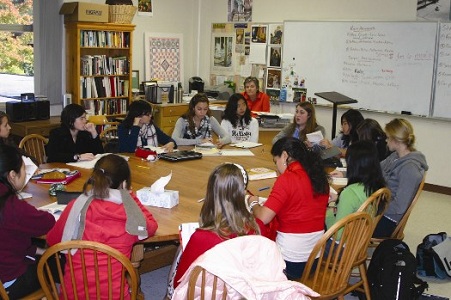


Test Preparation
- Practice Tests
- State Test Preparation
- ACT/SAT Preparation
- Test Camp
Tutoring
The Learning Center provides one-on-one tutoring in Math, Reading, and Writing. We also offer homework help and summer read more
Our Instructors
All Learning Center teachers are licensed to teach by the state. Many also have certifications or licenses for specific read more
American Star Education

SAT Training
     
|
We provide test preparation training for SAT and TOFEL, as well as speaking English. English has become the most important language of international business and commerce. While many students study English and learn the structures of its grammar and vocabulary, speaking English is the key to personal and professional success. ASE instructors will provide daily intensive instruction in Conversational English and applied English using proven methodology, including creative situational role-play and small group exercises that emphasize pronunciation, idiomatic expressions and subtleties of the English language in real world settings. The primary emphasis of the language instruction is on oral acquisition and expression. Other areas to be included: Oral Language, Pronunciation, Writing, and Applied Language Skills. Oral Language Confidence in
Pronunciation Writing Applied Language Skills SAT Prep and TOEFL
Prep For many international students, improvements on the SAT score means that they do not need their TOEFL test scores. For those students whose SAT score is not high enough, our ASE instructors are also highly qualified for TOEFL preparation. |
ASE Creativity and Critical
Reading
If there is one area in which American schools clearly excel it is in
the fostering of creativity and critical thinking skills. The American culture
is entrepreneurial and innovative because our educational system encourages
students to think critically about problems and to devise creative solutions on
his/her own.
Our ASE curriculum teaches Chinese students deductive reasoning skills and how to synthesize different pieces of information into solutions for which they might not have originally been intended. There are methods to test for these skills and mechanisms that can develop them in students. Because American Business Culture also reflects this spirit of creativity, ASE examines the American business culture for comparison to Chinese culture. Similarities and differences in the two countries including customs, beliefs, ethics, trends, and even the use of technology including social media, and social habits are all explored.
The ASE Harkness
Method
First developed at the elite preparatory school Phillips-Exeter and
used at many of the most prestigious secondary schools in the United States, our
ASE instructors prepare students by developing them for the social interactivity
present in all university classrooms.
The central strategy of our ASE instruction model centers on a proven methodology wherein the students sit around a large table and the discourse is highly interactive in structure. The teacher forces the students to ask and answer questions of each other and to solve problems collegially. Our ASE curriculum is specifically designed to foster independent ingenuity while also enhancing the collectivist spirit of common goals that is a strength of the Chinese system. Our unity approach and Harkness method develops leaders and innovators who feel a responsibility to the team as a whole. Your Chinese students will have opportunities to do the following active learning tasks under the direction of our ASE instructors:
•
Organizing, leading
•
Summarizing, restating or clarifying the
text
• Citing
specific quotations, passages or pages from the text
• Asking a
question about the text
•
Commenting on the text, giving an opinion or reaction
• Making a
suggestion about text or discussion
•
Summarizing discussion up to that point
• Analyzing
text or comment or whole discussion
• Reacting
to comments
• Answering
comments
•
Restarting discussions
• Filling
in a gap
• Arguing a
point
• Asking
for new information
• Asking
for other comments, reactions
• Comparing
to other works
ASE
Roundtable





